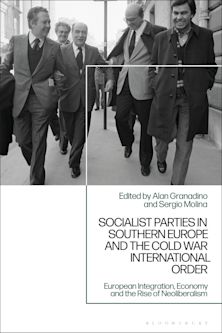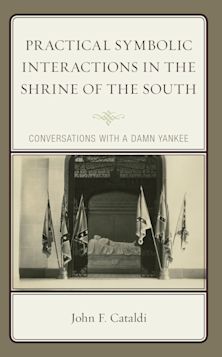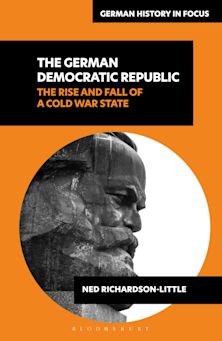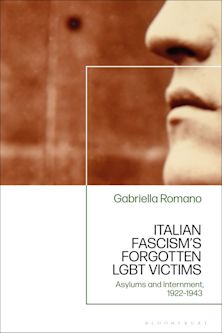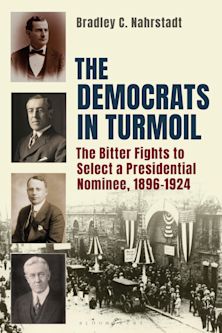- Home
- ACADEMIC
- Politics & International Relations
- Political History
- Coming in from the Cold War
Coming in from the Cold War
Changes in U.S.-European Interactions since 1980
Sabrina P. Ramet (Anthology Editor) , Christine Ingebritsen (Anthology Editor) , Mikhail A. Alexseev (Contributor) , David J. Allen (Contributor) , Cecilia Chessa (Contributor) , Christopher Coker (Contributor) , Paul D'Anieri (Contributor) , Mark Gardner (Contributor) , James Gow (Contributor) , Jolyon Howorth (Contributor) , Michael P. Marks (Contributor) , Sabrina P. Ramet (Contributor) , Patricia J. Smith (Contributor)
Coming in from the Cold War
Changes in U.S.-European Interactions since 1980
Sabrina P. Ramet (Anthology Editor) , Christine Ingebritsen (Anthology Editor) , Mikhail A. Alexseev (Contributor) , David J. Allen (Contributor) , Cecilia Chessa (Contributor) , Christopher Coker (Contributor) , Paul D'Anieri (Contributor) , Mark Gardner (Contributor) , James Gow (Contributor) , Jolyon Howorth (Contributor) , Michael P. Marks (Contributor) , Sabrina P. Ramet (Contributor) , Patricia J. Smith (Contributor)
For information on how we process your data, read our Privacy Policy
Thank you. We will email you when this book is available to order
You must sign in to add this item to your wishlist. Please sign in or create an account
Description
The early 1980s brought dramatic changes in East-West relations. The decade began with the death of Yugoslavia's Tito, the birth of Poland's Solidarity trade union, and the U.S. election of Ronald Reagan as president. These key developments, together with the growing financial insolvency of the Soviet bloc and shifts in power in the Kremlin-culminating in the election of Mikhail Gorbachev as general secretary of the Communist Party of the Soviet Union in 1985-signalled the end of an era. Since then, U.S. relations with Europe have charted a new course, influenced especially by the dissolution of the Warsaw Pact, the expansion of NATO, and the growing strength of the European Union. This volume analyzes U.S. relations with Britain, France, Germany, Spain, Russia, Poland, and Ukraine, and examines the new role for NATO in the post-Cold War world and the evolving dynamics in the U.S.-EU partnership. Through their assessment of mutual perceptions, evolving interests, and clashing agendas, the contributors offer a fresh and thoughtful exploration of the relationship between the United States and the major European states.
Table of Contents
Chapter 2 NATO as a Postmodern Alliance
Chapter 3 A Competitive Relationship: The Maturing of the U.S.-EU Relationship, 1980-2000
Chapter 4 A Relationship Both Special and Mundane: The Politics of Power, Party, and Leadership in U.S. -British Relations since 1980
Chapter 5 Renegotiating the Marriage Contract: Franco-American Relations since 1981
Chapter 6 The Impact of Post-Cold War Changes on the U.S.-German Relationship
Chapter 7 Coming into Europe: The U.S. -Spanish Relationship since 1980
Chapter 8 From the Cold War to the "Cold Peace": U.S. -Russian Interactions from Gorbachev to the Present
Chapter 9 "Let Poland be Poland": The U.S.-Polish Relationship from 1980 to the Present
Chapter 10 Ukraine and the U.S. since 1991: The Reshaping of Expectations
Chapter 11 The Future of NATO and the Euro-Atlantic Community: Productive Partnerships and Constructive Ends?
Product details
| Published | 20 Dec 2001 |
|---|---|
| Format | Ebook (PDF) |
| Edition | 1st |
| Extent | 256 |
| ISBN | 9798216335061 |
| Imprint | Rowman & Littlefield |
| Publisher | Bloomsbury Publishing |
About the contributors
Reviews
-
This fresh and thoughtful assessment of the developing relationship between the United States and the principal European nations provides readers with riveting insights as to America's future on the European continent.
Parameters












